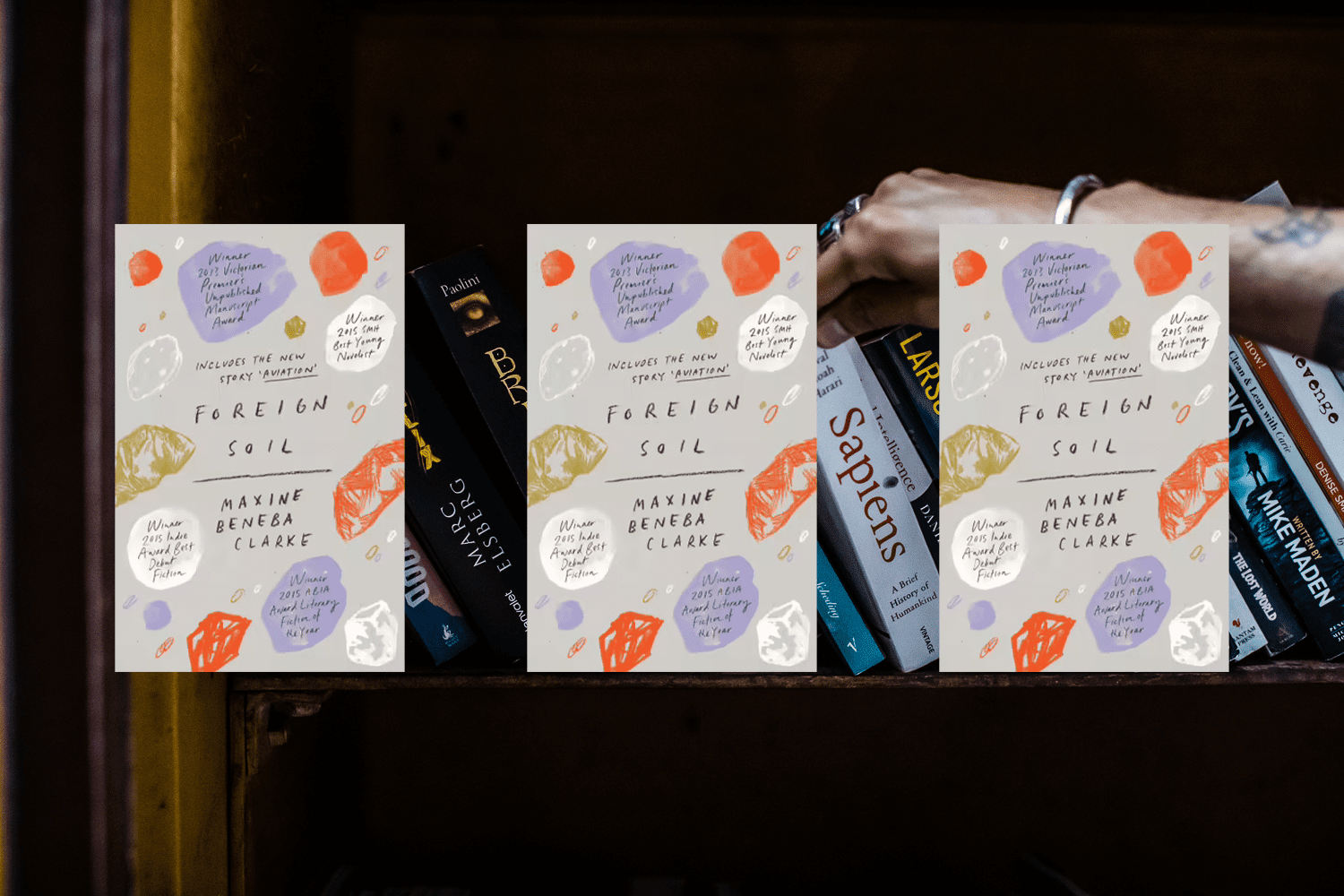
Read if you’re: Wanting to reflect, grapple.
Genre: Contemporary fiction
Year released: 2014
Author: Maxine Beneba Clarke
Foreign Soil deserves every accolade it’s been given. It’s a collection of award-winning stories, one per chapter, where Australian writer of Afro-Caribbean descent, Maxine Beneba Clarke, offers perspective, a microphone, the floor to the defenseless, off-course and mistreated. Within its 285 pages Clarke dives into the lives of characters right smack-bang in the middle of the interaction of class, race and gender.
In The Stilt Fisherman of Kathaluwa, the ninth story within the book, third-person narrative is used to tell the story of Asanka, a Sri Lankan refugee fleeing the Tamil Tigers as he wanders the halls of Villawood. Flashbacks of Asanka’s journey by boat are juxtaposed to Loretta’s, a Villawood volunteer lawyer living in suburban Sydney. Asanka is haunted by both his journey and his past, and the two narratives — his and Loretta’s — culminate as she departs the centre, and the story and a meeting with Asanka, upset about her failing marriage, and Asanka, having sewn his mouth together seemingly causing a “commotion”.
For those of us who’ve ever mused about what more we could be doing to positively impact our refugee crisis, Asanka and Loretta’s story offers a heart-breaking insight, an insight that Clarke poetically shares here within the parallel confines of a story we all know all too well.
As Clarke shares experience and perspective, story upon story, readers are drawn into their brains, perhaps most deftly by Clarke’s tool of spelling out accents — “mi call im” says Millie, of Jamaica. Although these are stories about inequalities of power in the intersections of class and race, Beneba Clarke also uses narrative voices and the effects of dialogue to show characters attempting to create and assert a coherent self through the power of speech.
It’s true this multi-award-winning book deals with meaty topics — racism, inequality, trauma — but it does it in a way that feels satisfying and insightful. One is better for reading this book of stories, and certainly better for telling others too. We’d argue it’s a book you should knock over over a weekend, perhaps in a hotel? Under the comforting pressure of duck down bedding? We’ve got you. Reserve your book-cation here.